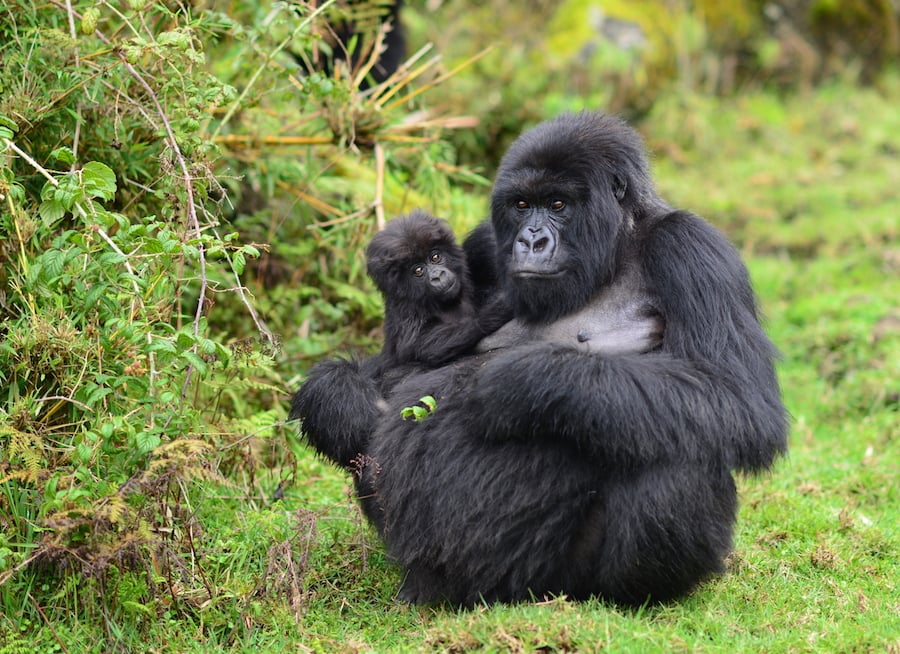
Fact 1: Gorillas are strong and muscular, but they aren’t as scary as you might think.
Movies like “King Kong” may have scared you, but gorillas are actually nicknamed gentle giants due to their calm demeanor. Don’t get us wrong, gorillas are much stronger than the average human, so they could easily hurt us if they choose to. That being said, if you keep your distance and don’t make eye contact or behave threateningly, you are likely to have a peaceful experience with a gorilla!
Fact 2: You’re probably chestbeating wrong.
Everyone probably knows what gorilla chestbeating is, but do you know how to chest beat correctly? It seems like everyone tries to imitate a chest beat using closed fists; however, actual gorillas never chest beat this way! If you look closely at a clip of a gorilla chestbeating, you will see that they use the palms of their hands to make the iconic noise. Using their palms instead of their fists is less likely to injure the individual performing the chest beat, and it creates a louder noise, which carries much further in the jungle.
Fact 3: Gorillas are not monkeys.
Within the order primate, there are multiple categories, including prosimians, monkeys and apes. A majority of the primates you come across are monkeys, but don’t let seeing a prosimian or ape trip you up! Common monkeys you may see include capuchins, macaques, and baboons. Common prosimians include lemurs and tarsiers. Many people think gorillas are part of the monkey family, but gorillas are actually one of the five types of great ape. A general rule of thumb for distinguishing a monkey or prosimian from an ape is that monkeys and prosimians have tails, while apes do not.
Fact 4: Primates do not make good pets.
You may see pictures of baby primates, especially gorillas and think “how cute! I would love one as a pet!” But gorillas and other primates make AWFUL pets for a whole host of reasons! Most are stronger than the average human with sharp teeth and can easily inflict injury. They can be difficult to care for, requiring specialized diets. They have habits you likely don’t want in your house—urine washing to mark territory comes to mind. As they depend on their social groups to thrive, primates who are isolated from peers often become psychologically damaged.
Fact 5: Primates don’t eat bananas.
You may have seen Curious George or a monkey at a zoo eat a banana, but bananas, especially the ones we see at the grocery store, are not native to the forests where primates live. However, just like us, primates do like the taste of bananas and this can often result in human-wildlife conflict when bananas are planted near forests and the primates come out to steal them.







